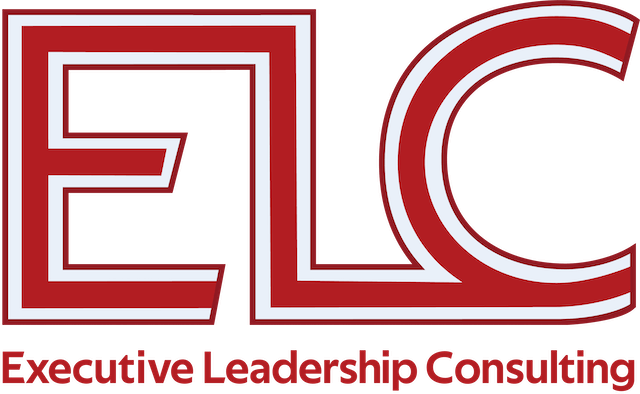We become more powerful when we empower others. Great leaders unleash the leader within each person, liberating them to use their own power. Everyone wants to feel like they are contributing to the vision. This is why leader empowerment is important.
You can empower others by acknowledging their strengths and potential contributions. First, identify their strengths. Ask people what they think are their strengths and the strengths of the other team members. Then, invite them to lead and contribute in their area of strength.
According to a Gallup study, “67% of employees who strongly agree that their manager focuses on their strengths or positive characteristics are engaged. When employees strongly disagree with this statement, the percentage of workers who are engaged in their work plummets to 2%.” . Now that’s powerful!
Not only will empowering your employees improve their confidence, it will increase your confidence in them too. When your team is empowered to leverage their strengths, they require less oversight from you. In other words, you empower them and they empower each other. You can depend on them to get the job done and get it done well. Then, you can spend your time leading the organization and achieving the vision.
Defining Leadership Empowerment
Leader Empowerment is the process of giving employees the authority to make decisions, take action, and be held accountable for results. When you empower your team, you create buy-in and ownership of the vision. Everyone feels like they are a part of something larger than themselves.
There are different types of empowerment. The most common are positional, psychological, and social empowerment.
Positional empowerment is when you give someone a title or position that comes with authority. For example, you may promote an employee to team lead. This type of empowerment is less effective because it does not guarantee that the person will have the skills or abilities to be successful in the role.
Psychological empowerment is when you give someone the authority to make decisions and be held accountable for results. This type of empowerment is more effective because it is based on trust. When you trust someone, they are more likely to trust themselves.
Social empowerment is when you create an environment that supports and encourages personal growth. This type of empowerment is the most effective because it leads to lasting change.
Why Is Empowerment Important For a Leader?
Empowerment is important for leaders because it increases employee engagement, which leads to improved performance. When people are empowered leaders, they feel valued and motivated to do their best work.
Empowered employees are also more likely to stay with the company. They are less likely to leave for another job because they feel invested in the company and its success. Naturally, this empowers others.
At ELC, we work with clients to go beyond engagement to passion. When your team is passionate about their role and passionate about your company and they’re empowered to drive growth and profitability, the results become exponential.
How Do We Empower Others At Work?
The best way to empower others to act on the vision is to create an environment that supports and encourages personal growth. How can you empower others?
- Encourage employees to take on new challenges
- Support employees in their professional development
- Create forums for employees to share their ideas
- Respect employees’ time and commitments
- Build a culture of trust and open communication.
Successful Businesses Empower Their Leadership For The Long Term
The most successful businesses empower their leadership for the long term. They invest in their leaders’ development, build trust in their team, and create an environment that supports and encourages personal growth.
By taking a long-term approach to leadership empowerment, you’ll foster a positive work culture and build a team of engaged, high-performing employees.
5 Important Leadership Empowerment Actions To Take:
1. Build Trust
The first step to empowering your team is to trust them. If you don’t trust your team, you won’t give them the autonomy they need to be successful. It also gives them the power and responsibility to make decisions and be held accountable for results.
Mistakes are bound to happen. However, if you trust your team, you will be more likely to forgive them when they do. Building trust takes time and effort, but it is worth it. It empowers others
2. Gather Feedback From Your Team
Feedback is essential for empowering your team. It allows you to understand their needs and concerns. It also gives you the opportunity to provide support and guidance.
The best way to gather feedback is to have regular one-on-one meetings with each member of your team. During these meetings, ask them how they are doing and what you can do to support them.
You can also use surveys, assessments, and focus groups to gather feedback from your team. At ELC, we have assessments to measure trust, alignment, agility, and passion in your team.
3. Create a Universal Work Environment
A universal work environment is one that is inclusive of all employees. It is a place where everyone feels valued and respected.
Creating a universal work environment starts with you as the leader. You must model the behavior you expect from your team. You can do this by being respectful and open-minded.
You reinforce an inclusive and universal work environment through your company values. Create a simple and descriptive set of values, and as a leader, walk your talk and recognize and reward those who live the values.
4. Leaders Empower Everyone to Share Ideas for Growth and Improvement
As a leader, you don’t always see the details of inefficiency and opportunity. Encourage your team to share their ideas of ways to continuously improve their processes. Provide regular forums to share what’s working and not working in their departments or functions and ways they can make it better.
Create an environment where it’s safe to question why we do things the way we do and offer suggestions for how to empower others. Ensure everyone in the organization understands the vision and strategy and keep an open door and an open mind to hear new ideas for opportunities to make the vision a reality.
5. Show Appreciation for Your Team
Appreciation is a key ingredient in any successful relationship. It’s also an important part of empowering your team. When you show appreciation, you let your team know that you value their contributions and want to see more of it.
There are many ways to show appreciation. You can give verbal praise, write thank-you notes, or give awards and recognition. Whatever method you choose, be sincere and authentic. Different people like to be appreciated differently. For example, being recognized in a group might have the reverse effect. Ask your team members how they like to be recognized.
Empowering Others Is Key to Successful Leadership
Take a moment to reflect on how you’re empowering your team:
- How are you empowering and serving others?
- What are you doing to help your team members grow and develop their strengths?
- What can you do to help them be their best?
Leaders empowering their teams is essential for a successful business. It allows you to tap into your team’s potential and create a positive work environment. By taking the time to empower your team, you’ll reap the rewards for years to come.
If you need guidance on the most effective ways to empower your team, schedule a complimentary strategy session with us today to get started!





